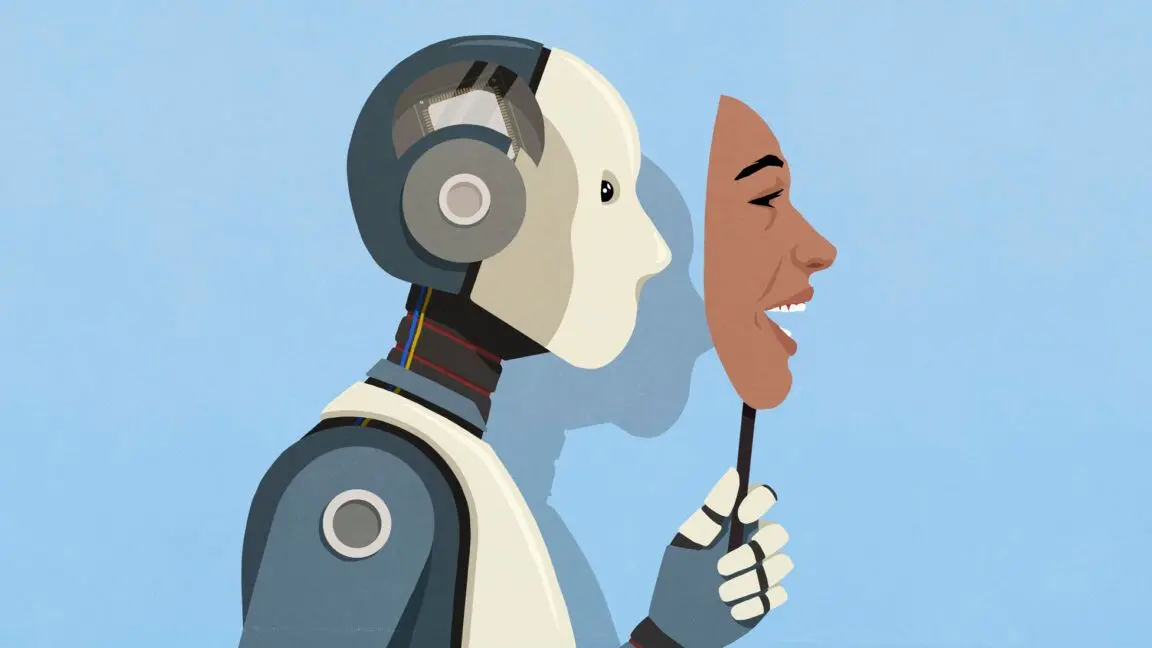AI Accusation Controversy at Australian University Derails Student Careers
2 Sources
2 Sources
[1]
University Using AI to Falsely Accuse Students of Cheating With AI
College students are being wrongly accused of using AI to cheat on their assignments by their university -- based, in a headache-inducing twist, on the findings of another AI system. That's according to new reporting from Australia's ABC News which illustrates the nightmarish impact that AI's inroads has had in education as it irreversibly erodes the trust between professors and pupils. A student named Madeleine told the outlet that when she was in the middle of her final-year university nursing placement and applying for graduate jobs, she received an email from Australian Catholic University titled "Academic Integrity Concern," which accused of her using AI to cheat an assignment. "And on top of that, I was getting emails from the academic misconduct board saying I needed to write out an explanation as to why I think this might have happened," Madeleine told the ABC. ACU was quick to accuse Madeleine, but slow to clear her name. She had to wait six months before the accusations were dropped, and during that entire period, her transcript was marked as "results withheld." This, she says, is part of the reason why she wasn't offered a graduate position. "It was really difficult to then get into the field as a nurse because most places require you to have a grad year," Madeleine told the ABC. "I didn't know what to do. Do I go back and study? Do I just give up and do something that's not nursing in a hospital?" Madeleine is not alone. Her university reported nearly 6,000 cases of alleged cheating in 2024, with about 90 percent them relating to AI use. (ACU deputy vice-chancellor Tania Broadley claimed to the ABC that the numbers were "substantially overstated"; though she acknowledged there had been an uptick in referrals for academic misconduct last year, she wouldn't comment on the students who were wrongly accused.) The complaints come as AI is rapidly adopted by schools and universities across the world -- though not as rapidly as how students picked up chatbots to cheat on their assignments or generate entire essays. Given the popularity of AI tools, professors probably aren't wrong to be suspicious about their pupils using them. But you can't blame students for feeling wrongly maligned, either. Now that AI is out there, it's permanently altered how we trust what we see, and there's probably no going back. It doesn't help that these institutions are sending mixed messages on AI, often embracing the tools and even partnering with AI firms, while at the same time warning students that they could be guilty of cheating if they use the tools wrong. The hypocrisy can be thick. In a reversal of how being put on trial at a court of law should work, it seems all the burden was on the students to prove their innocence, while all ACU based its entire case on was a single AI-generated report. Some of the ways that the university wanted the students prove their innocence sound alarmingly invasive. Emails viewed by the ABC showed that ACU's academic integrity officers demanded that accused parties give over not only their handwritten and typed notes -- which could be dozens of pages -- but their entire internet search histories, just to prove they never accessed AI tools. "They're not police. They don't have search warrant to request your search history," an ACU paramedic student wrongly accused of cheating with AI told the ABC. "But when [you're facing] the cost of having to repeat a unit, you just do what they want." Per the reporting, the tool the university used was an AI detector from the software Turnitin, a long been popular service with educators for detecting plagiarism. On its website, Turnitin cautions that the AI detector "should not be used as the sole basis for adverse actions against a statement," the ABC noted. There's a reason for that. "It's AI detecting AI and almost my entire essay was lit up in blue -- 84 per cent of it supposedly written by AI," the paramedic student told the news outlet. After being aware of the Turnitin tool's problems for over a year, ACU finally stopped using it this March. "Around one-quarter of all referrals were dismissed following investigation," Broadley told the ABC, "and any case where Turnitin's AI detection tool was the sole evidence was dismissed immediately." Yet the accounts of Madeleine and other students suggest that cases were rarely so swiftly dismissed, and Broadley also admitted that "investigations were not as always as time as they should have been."
[2]
How a university's AI witch hunt derailed a student's career
A six-month investigation based on a false AI accusation left a student's transcript marked "results withheld" costing her a graduate nursing position. Australian Catholic University (ACU) has faced scrutiny for wrongly accusing students of using artificial intelligence to cheat, basing these allegations on findings from another AI system. This process resulted in professional setbacks for affected students, including a final-year nursing student named Madeleine. While completing her final-year university nursing placement and actively applying for graduate jobs, Madeleine received an email from the university with the subject line "Academic Integrity Concern." The correspondence contained an accusation that she had used AI to cheat on an assignment. The situation escalated beyond the initial email. "And on top of that, I was getting emails from the academic misconduct board saying I needed to write out an explanation as to why I think this might have happened," Madeleine stated. This placed the burden on her to defend her academic integrity at a critical juncture in her education and career launch. Following the accusation, ACU took six months to clear her name and drop the allegations. Throughout this entire half-year period, a formal notation of "results withheld" was placed on her official academic transcript. This mark served as a significant obstacle during her search for employment. Madeleine identified this delay and the formal status on her transcript as a contributing factor in her failure to secure a graduate nursing position. The extended investigation period directly overlapped with the primary hiring cycle for new nursing graduates, placing her at a distinct disadvantage compared to her peers with clear academic records. The professional consequences of the university's protracted investigation were substantial. The inability to secure a graduate position created a significant barrier to entering her chosen profession. "It was really difficult to then get into the field as a nurse because most places require you to have a grad year," Madeleine explained. The standard career pathway for many newly qualified nurses involves such a program, which provides essential supervised practice and professional development. Left without this opportunity, she faced uncertainty about her future. "I didn't know what to do. Do I go back and study? Do I just give up and do something that's not nursing in a hospital?" she said, describing the professional crossroads she faced as a direct result of the unsubstantiated cheating allegation. Madeleine's experience was not an isolated incident. The university reported a substantial volume of academic integrity cases, with nearly 6,000 instances of alleged cheating recorded in 2024. Of these cases, approximately 90 percent were specifically related to the use of artificial intelligence. This figure highlights a widespread institutional effort to police the use of AI tools among the student body. The large number of referrals suggests a systemic approach to identifying potential misconduct, which, in turn, affected a significant portion of the student population under review. In response to these figures, ACU Deputy Vice-Chancellor Tania Broadley asserted that the numbers were "substantially overstated." While she did acknowledge that there had been an "uptick in referrals for academic misconduct last year," she did not provide alternative statistics. Broadley also declined to comment on the specific circumstances of students who, like Madeleine, were wrongly accused of academic dishonesty. The university's official position acknowledged a rise in cases while simultaneously questioning the accuracy of the reported total, without offering clarification on the discrepancy. The investigative process at ACU required accused students to prove their own innocence. The university's academic integrity officers issued demands for evidence that were described as invasive. According to emails reviewed by ABC News, students were instructed to submit extensive documentation to support their cases. This included not only their handwritten and typed notes for the assignment in question, which could amount to dozens of pages, but also their complete internet search histories. The university sought this data to verify that students had not accessed AI tools during their work. The demand for personal data such as internet search histories was met with concern by students, who felt they had little choice but to comply. An ACU paramedic student who was also wrongly accused of AI-related cheating commented on the university's authority in making such requests. "They're not police. They don't have a search warrant to request your search history," the student stated. Despite this, the student explained the pressure to cooperate was immense. "But when you're facing the cost of having to repeat a unit, you just do what they want." This dynamic compelled students to surrender their private data to avoid severe academic and financial penalties. The university's accusations were substantially based on reports generated by an AI detection tool from the software company Turnitin. This service has long been used by educational institutions for its plagiarism detection capabilities. However, Turnitin itself provides a specific caution regarding the use of its AI detector. The company's website states that the tool "should not be used as the sole basis for adverse actions against a statement." This warning advises against using the AI-generated score as the only piece of evidence in disciplinary proceedings. The paramedic student who was wrongly accused described the flawed output of the detection tool in practice. The student's essay was flagged with a high probability of being AI-generated, creating a report that was difficult to contest. "It's AI detecting AI and almost my entire essay was lit up in blue -- 84 per cent of it supposedly written by AI," the student reported. This firsthand account illustrates the potential for the detector to produce significant false positives, casting doubt on the validity of its findings as standalone evidence. ACU ultimately ceased its use of the Turnitin AI detector in March of this year. This policy change was implemented after the university had been aware of the tool's limitations and potential for error for over a year. The decision to discontinue the software came after numerous students had already been subjected to investigations based on its findings. The delay in acting on the known problems with the detection technology meant that the flawed system remained a part of the university's academic integrity process for an extended period. Deputy Vice-Chancellor Broadley provided figures on the outcomes of the investigations, stating, "Around one-quarter of all referrals were dismissed following investigation." She further claimed that "any case where Turnitin's AI detection tool was the sole evidence was dismissed immediately." This official account suggests a protocol was in place to quickly resolve cases that lacked corroborating evidence beyond the software's report. According to this statement, a significant number of cases were filtered out and did not result in a finding of misconduct. However, the experiences of Madeleine and other students contradict the assertion that cases were consistently dismissed swiftly. Madeleine's six-month wait before being cleared stands as a direct counterexample to the claim of immediate dismissal. In a further acknowledgment of procedural shortcomings, Broadley admitted that the university's handling of these cases was not always sufficient. She conceded that "investigations were not always as thorough as they should have been," recognizing that the university's process had identifiable flaws.
Share
Share
Copy Link
Australian Catholic University faces backlash for falsely accusing students of using AI to cheat, based on flawed AI detection tools. The controversy highlights the challenges of maintaining academic integrity in the age of AI.
AI Accusation Controversy at Australian Catholic University
In a troubling development at the intersection of artificial intelligence and education, Australian Catholic University (ACU) has come under fire for falsely accusing students of using AI to cheat on assignments. Ironically, these accusations were based on the findings of another AI system, highlighting the complex challenges educational institutions face in the era of rapidly advancing AI technology
1
.The Case of Madeleine: A Career Derailed
One of the most striking cases involves a final-year nursing student named Madeleine. While completing her nursing placement and applying for graduate positions, she received an email from ACU titled "Academic Integrity Concern," accusing her of using AI to cheat on an assignment
1
2
.The consequences for Madeleine were severe:
- A six-month investigation period during which her transcript was marked "results withheld"
- Missed opportunities for graduate nursing positions
- Uncertainty about her future in the nursing field
"It was really difficult to then get into the field as a nurse because most places require you to have a grad year," Madeleine explained, highlighting the professional setback caused by the false accusation
2
.
Source: Futurism
Widespread Impact and University Response
Madeleine's case is not isolated. ACU reported nearly 6,000 cases of alleged cheating in 2024, with about 90 percent related to AI use. However, ACU deputy vice-chancellor Tania Broadley claimed these numbers were "substantially overstated," though she acknowledged an uptick in referrals for academic misconduct
1
2
.The AI Detection Tool and Its Flaws
The university relied on an AI detector from the software Turnitin, a popular service for detecting plagiarism. However, the tool's reliability came into question:
- Turnitin's website cautions against using the AI detector as the sole basis for adverse actions
- Students reported high percentages of their work falsely flagged as AI-generated
- ACU finally stopped using the tool in March, after being aware of its problems for over a year
1
Related Stories
Invasive Investigation Practices
The university's methods for investigating these cases raised concerns about student privacy:
- Academic integrity officers demanded handwritten and typed notes from accused students
- Students were asked to provide their entire internet search histories
- The burden of proof was placed entirely on the students to demonstrate their innocence
1
2
An ACU paramedic student, also wrongly accused, commented on the invasive nature of these requests: "They're not police. They don't have a search warrant to request your search history."
1
The Broader Implications
This controversy at ACU highlights the growing tensions between AI advancements and academic integrity. As AI tools become more prevalent, educational institutions are struggling to balance the prevention of cheating with fairness to students. The case underscores the need for more reliable detection methods and clearer policies regarding AI use in academia.
References
Summarized by
Navi
Related Stories
University of Illinois Students Caught Using AI to Apologize for Cheating, Highlighting Academic Integrity Crisis
30 Oct 2025•Entertainment and Society

Student Demands Tuition Refund After Catching Professor Using ChatGPT
15 May 2025•Technology

University Lecturer's Drastic Measure Against Suspected AI Use Sparks Controversy
30 Aug 2025•Technology

Recent Highlights
1
Google Gemini 3.1 Pro doubles reasoning score, beats rivals in key AI benchmarks
Technology

2
Meta strikes up to $100 billion AI chips deal with AMD, could acquire 10% stake in chipmaker
Technology

3
Pentagon threatens Anthropic with supply chain risk label over AI safeguards for military use
Policy and Regulation





